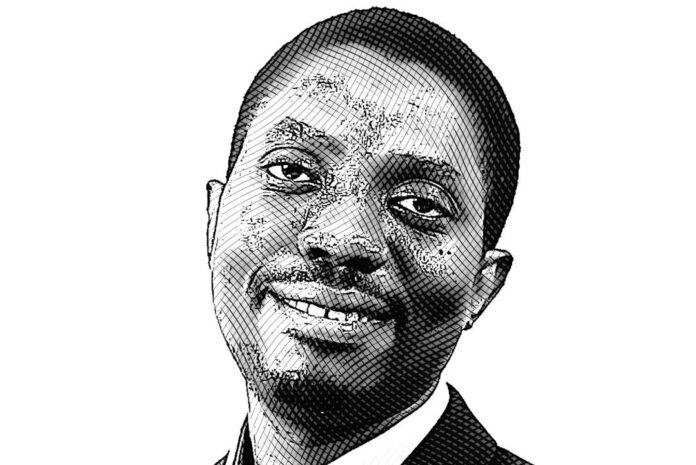This fence sitting posture of many of Nigeria’s non-political elite in the face of serious national problems is far more damaging to the country than has been widely acknowledged.
By Napoleon Esemudje
From the earliest days of organized society, thousands of years before Thomas Hobbes and John Lockes theorized the frames of social-economic classes in the 19th Century, a small group of influential individuals have existed as the drivers of social change and communal development. From hunter-gatherer societies to the first ancient civilizations, those regarded as the social elite have served as bellwethers for their communities. These individuals (high priests, chiefs, nobles, warriors, merchants, philosophers and specialized craftsmen) not only carry the cultural DNA of their communities, their values, interests and actions collectively determine the leverage of the sovereign and the prosperity of their communities.
The Power Behind The Throne
As it was for these pre-modern societies, so it is for countries in the modern era. Members of the social elite continue to drive fundamental socio-political and economic development regardless of the prevailing political or economic system. Indeed, the modern state cannot function without a strong elite framework because like the nobility, landowners and knights of pre-modern feudal societies, they are the middlemen between the government and the governed – the fulcrum on which the power of the ruling class swings. This is equally true in totalitarian or post revolutionary states, though it is often assumed that the latter is established by bottom-up mass-action campaigns. The reality is a little different.
How Elite Groups Drive The Engine of Social Change
Mass action campaigns for civil liberties, political changes or just bread and butter issues, may have triggered many revolutions across the world. However, their ultimate success or failure in overcoming and replacing the status quo and supporting structures are enabled only by the active and sustained involvement of a critical mass of the social elite. These individuals with access to more information and perspectives derived from their engagement with both the ruling class and the working class are better placed to influence public policy. They are also very effective in leading the process for political, economic and social change when they come together, united by a shared ideological conviction. This has played out repeatedly in Nigeria.
READ ALSO:
Why Nigerians need to vote Obi-Datti into power on Saturday (1)
When They Were Heroes
In the years preceding independence in 1960, a groundswell of elite consensus for political independence swept across the country. Even those on the fringe of this consensus were pulled into the heady swirls of the independence movement. The result was a peaceful transfer of power from British colonial rule. This same process played out in the 1990s following years of military rule in the country. A determined engagement and shared conviction on the ills of military rule amongst Nigeria’s academic, business, traditional, religious, media, political and security elite eventually led to the actualization of civil rule. On the other hand, when they are fractured (as they often are over ethnic, religious and other narrow interests), the country falters.
The Case For Fence Sitters
Some may argue that members of the national elite should only be active in driving change within their professional circles. That the non-political elite in particular, should neither seek nor be visibly engaged in the process of driving change in the political sphere; and should at best maintain a neutral and tight-lipped disposition in matters that shape political outcomes. This is a mistake. Members of Nigeria’s diverse elite have higher stakes in public policies and the processes that create them than the average citizen. While these interests ultimately shape their convictions and level of political engagement, it is fair to separate Nigeria’s social elite into three groups i.e. those that want to change the status quo, those that want the status quo to remain and those that tacitly seek to straddle both positions by sitting on the fence. In recent years, the latter is increasingly a place of comfort for some of Nigeria’s most powerful elite.
Nigeria’s Elite Crisis
Unfortunately, this fence sitting posture of many of Nigeria’s non-political elite in the face of serious national problems is far more damaging to the country than has been widely acknowledged. After all, in the public imagination, blaming politicians for our national woes is par for the course. But without the support of the non-political elite, failing politicians will quickly run out of steam because politicians of all stripes need the non-political elite not just for their financial and technical resources but also for reputational legitimacy. This is how well the social elite can serve as a force for good or for evil. Regrettably, there appears to be a crisis of role consciousness and cognitive dissonance amongst many of Nigeria’s elite. Few appreciate the philosophical value of enlightened self-interest and many fail to realize that in the contemptuous eyes of the world, Nigeria’s failures are the legacies of its privileged elite.
When Nigeria’s Elite Stand Together
And so the troubling reality remains that until a critical mass of Nigeria’s elite come together and speak with one voice in the national interest (including for instance, pushing for the emergence of capable and credible individuals for national leadership), little will change. Still, history has demonstrated that when the stakes are high enough, and Nigeria’s elite can push the needle far enough for significant and positive change. But this happens only when they set aside their differences and stand shoulder to shoulder, with arms locked together, to push in the bright light of day, a new direction for the country. For in the final analysis, Nigeria’s fate is in the hands of its elite and where the elite go, the country follows.













